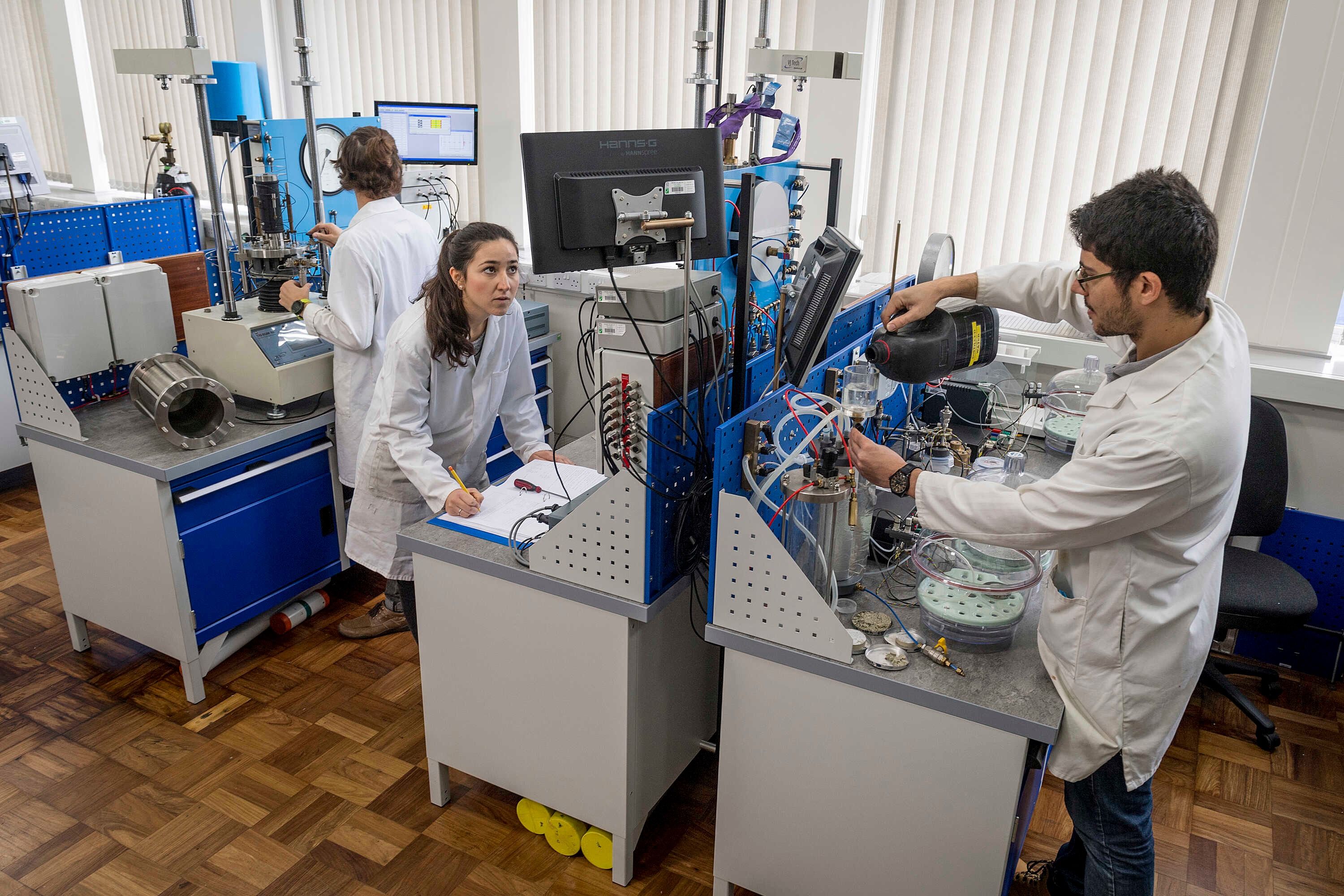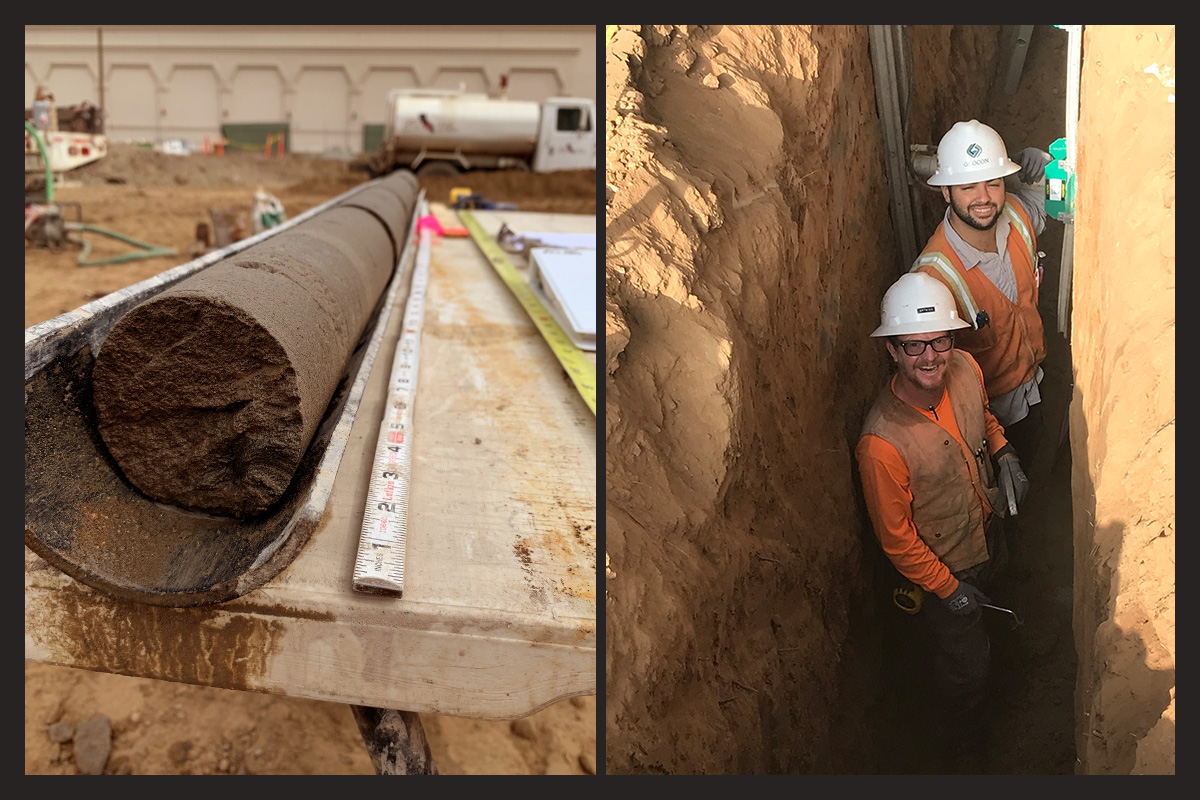
The Earth’s Secrets and Our Concrete Dreams: Is Geology an Engineering Buddy?
Digging Deep, Building High – The Odd Couple of Sciences
So, you’re wondering if geology, that dusty old subject with rocks and fossils, is secretly an engineer in disguise? It’s a fair question, and honestly, it’s a bit like asking if your quirky aunt is secretly a superhero. They’re not exactly the same thing, but boy, do they work together! Think of geology as the Earth’s diary, telling us its history and makeup. Engineering? That’s when we take that diary and try to build a house on it, without the whole thing collapsing. You see, without knowing what’s underneath, we’d be building blind, like trying to assemble IKEA furniture without the instructions (we’ve all been there, right?).
Basically, geology gives us the lowdown on the Earth – the good, the bad, and the downright crumbly. Engineering, well, that’s where we take all that info and try to make something useful, like a bridge that doesn’t wobble or a tunnel that doesn’t flood. They’re like that old married couple who bicker constantly but secretly adore each other. One’s the brains, the other’s the brawn, and together, they make magic happen. You wouldn’t try to build a skyscraper on a swamp, would you? That’s where geology steps in, waving its geological maps and saying, “Hold my rock hammer, let me show you something.”
Take geotechnical engineering, for instance. Sounds fancy, right? It’s basically the lovechild of geology and civil engineering. These folks are the soil whisperers, figuring out if the ground can handle the weight of a building or a road. They’re like the real-life foundation experts, making sure your house doesn’t slowly sink into the earth. It’s a bit like being a doctor for the ground, diagnosing its problems and prescribing the right treatment. Without them, well, let’s just say a lot of buildings would be doing the Leaning Tower of Pisa impression.
And it’s not just about buildings. Think about subways. Imagine digging a tunnel under a city without knowing what’s down there. You could hit a water pocket, a fault line, or even a dinosaur bone (okay, maybe not). Geologists map all that out, like treasure hunters charting the unknown, so engineers can build tunnels that are safe and dry. It’s a team effort, like a really complicated puzzle where the pieces are rocks and dirt. And trust me, you don’t want to mess up this puzzle.

From Rocks to Roads: The Unsung Heroes of Construction and Mining
Where Earth’s Story Meets Human Ingenuity
Geology’s influence stretches far beyond just keeping buildings upright. Civil engineers, the masterminds behind roads and dams, are constantly consulting with geologists. They need to know about soil types, rock formations, and potential hazards like landslides. It’s like having a backstage pass to the Earth’s inner workings. Imagine trying to build a dam without knowing if the ground underneath can hold it. You’d be playing a very risky game of water roulette.
Then there’s mining engineering, where geology is practically the star of the show. Finding minerals, estimating their value, and planning the safest way to extract them – it’s all geology. They’re like the prospectors of the 21st century, using science instead of gut feeling. Without them, we’d be digging blind, hoping to strike it rich. It’s a bit like looking for a needle in a haystack, but the haystack is the entire planet.
And it’s not a one-and-done deal. Geology’s work continues long after the construction is finished. They monitor ground movements, check for erosion, and keep an eye on groundwater levels. It’s a bit like having a doctor do regular checkups on your house, making sure everything’s still healthy. This ongoing partnership ensures that our structures stay safe and sound, even as the Earth continues to do its thing.
We can’t forget about the environment either. Geologists help engineers minimize the impact of their projects, ensuring we don’t accidentally turn a beautiful landscape into a wasteland. It’s like being a responsible guest, leaving the place as good as, or better than, when you found it. They help us build a sustainable future, where we can use the Earth’s resources without wrecking the place. It’s like learning to live in harmony with our planet, instead of just taking what we want.

When the Earth Shakes and Slips: Geology’s Role in Disaster Prevention
Taming Nature’s Fury with Science and Smarts
One of the most dramatic ways geology and engineering team up is in dealing with natural disasters. Earthquakes, landslides, volcanoes – they’re all part of the Earth’s wild side. Geologists study these hazards, trying to figure out why they happen and where they might strike next. It’s like being a detective, piecing together clues from the Earth’s past to predict its future. Then, engineers use that information to build structures that can survive these events. It’s like building a superhero suit for our buildings.
Early warning systems are another crucial area. Geologists set up sensors to detect ground movements and other signs of impending disasters. It’s like having a network of spies, keeping an eye on the Earth’s every move. Engineers then use that data to create warning systems, giving people time to get to safety. It’s like having a heads-up before the storm hits, giving you time to grab your umbrella (or in this case, run for high ground).
Landslides are a constant threat in hilly areas. Geologists assess the stability of slopes, looking for signs of weakness. Engineers then design retaining walls and drainage systems to prevent them. It’s like putting a bandage on a wound, preventing it from getting worse. This teamwork protects communities from the devastating effects of landslides, ensuring that people can live safely in these areas.
Even coastal erosion, that slow but relentless process, requires a combined effort. Geologists study how waves and currents affect the coastline, while engineers build seawalls and other defenses. It’s like building a sandcastle that can actually withstand the tide, protecting our beaches and homes. It’s a constant battle against the sea, but with the right knowledge and tools, we can keep the water at bay.

Looking Ahead: The Future of Earth Science and Building the World
New Tech, New Ideas, and a Stronger Partnership
The future of geology and engineering is looking pretty exciting. New technologies like remote sensing and AI are giving us a better understanding of the Earth than ever before. It’s like having a super-powered microscope, letting us see things we never could before. This means engineers can design even smarter and more sustainable projects. It’s about building smarter, not harder.
With the world facing climate change, the need for sustainable energy is growing. Geologists are helping find new sources of geothermal energy and underground water storage. Engineers are then developing the technologies to harness these resources. It’s about finding new ways to power our world without harming it. It’s like finding a treasure chest of clean energy right beneath our feet.
AI is also changing the game, analyzing massive amounts of geological data to find patterns and predict events. It’s like having a super-smart assistant who can spot trends that humans might miss. This leads to better predictions and safer engineering designs. It’s like having a crystal ball that actually works, helping us make better decisions.
In the end, geology and engineering are like two sides of the same coin, working together to build a better future. It’s a partnership that’s more important than ever, as we face the challenges of a changing planet. It’s not just about building structures; it’s about building a sustainable and resilient world for everyone. It’s like writing a new chapter in the Earth’s story, one where humans and nature work together.
Your Burning Questions Answered: Geology and Engineering Explained
Let’s Clear Up the Confusion
Q: So, is a geologist an engineer, really?
A: Nah, not exactly. They’re more like best friends who work in the same field. Geologists study the Earth, engineers build stuff. Geotechnical engineers? They’re the cool kids who do both.
Q: What kind of engineering needs geology?
A: All sorts! Civil, mining, geotechnical, environmental – if it involves digging or building on the ground, geology’s involved.
Q: How does geology help with earthquakes?
A: They find the faults, predict the shakes, and help engineers build buildings that can survive the rumble. It’s like being a seismological superhero.
Q: Can I be a geotechnical engineer with a geology degree?
A: Absolutely! You’ll need some extra engineering courses, but you’ll have a solid foundation. It’